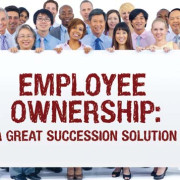Riding the Bronco but Protecting Your Family’s Wealth
You’ve built your business over 40 years. The name you coined is on the door, and you’re pretty proud of it. It supports your family and your community. You’ve put three children through school, and they and your grandchildren are now doing well in the very busy part of their lives. Your product is known for its quality, durability and reasonable price, and orders continue to increase (Even though you worry about it every day.)
You have a “business family” of many loyal employees. You’re providing a principal part of the support for their families, but you believe that they have helped you get where you are. Your business family is a rewarding part of your personal life, and you know your co-workers’ children and their grandchildren. You celebrate their joys and mourn their losses.
People at your golf club, people at Rotary and folks with whom you worship feel free to come to you for advice and counsel. Sometimes you can give young people advice that changes their lives, and sometimes you can bail folks out of temporary trouble. All in all you feel good about helping your community prosper.
You accountant tells you that there are other states where taxes are lower. You have a winter place in one of them, and you might live there for whatever part of the year is necessary for tax purposes, but three of your grandchildren are in town, and you don’t really want to cut all ties with the place that has been the home of your happiness and your success.
Your spouse retired about 10 years ago with a nice pension. You have put a decent amount in the company’s 401(k) plan. You don’t really need or want the minimum distributions required by the IRS because you’re still taking a salary from the business. Between the pension, your combined social security, the minimum required distribution and your draw from the business, you’ve got plenty of income.
You and your spouse are still pretty healthy, and life is satisfying.
At your last visit with your accountant she asked you what you’re going to do about the business. She said that it’s worth a lot more than your other assets and that you could liquidate it and receive a lot of cash even after taxes. You told her that you don’t want to quit because you’ve loved every minute of it. (Well, not every minute. There were a couple of times when you had to kick in cash to make payroll, and once you delivered a big load of defective product to your best customer, but those thing are in the past.)
You told her that you want to keep “riding the bronco” and that you don’t need the money. At that point she said, “You will exit your business one way or the other. The only interesting question is whether it’s on your terms.” She also pointed out that your spouse doesn’t know how to run the business, and that the business would have to be sold on a distress basis if something happened to you suddenly. She said, “It would be a shame if you needlessly squandered the wealth you have built.” You told her that you would think about it.
You went home from the meeting with your accountant’s words ringing in your ears. On the one hand you love the exhilaration of the business. You love its ups and even its downs. You have mastered the skills necessary for success and you love even the challenges of difficult times. You know that you can continue to be successful even in a roller coaster economy.
On the other hand, your accountant is right that your spouse can’t run the business. Even though you have great employees in critical positions, nobody has your experience or your overview of the whole firm. You’ve tried to groom a couple of people for executive roles, but they haven’t worked out particularly well. Your children are happy with their own careers, and they don’t want to join the family business.
As you think about it, you could probably put some of the wealth you’ve built to good use. You don’t really like the idea of making your children wealthy before they’ve made it on their own, but you wouldn’t mind setting something up for your grandkids’ education. If something happened to you, you’d certainly want to make sure your spouse didn’t have money worries. Some of the local charities could use help and support for the good things they are doing.
Then there is your “business family”, the hard-working people whose families depend on your business for all or part of their livelihood. You have a local business colleague who sold his family business to a fortune 500 company a few years back. The buyer promised to maintain local production. Within a couple of years, local production had been transferred elsewhere as a cost cutting move. Over 350 local people lost their jobs. Your colleague said he felt “betrayed”. His former employees felt that way, too.
You decide you need more advice from your accountant. On the next visit your describe your thinking, and she tells you that there is a whole range of solutions that can help you balance your financial, your personal and your civic concerns.
She recommends that you and she work together to explore ways that you can keep riding the bronco while you protect your family and your workers. She briefly describes outright sales, private equity recapitalizations, management buyouts, ESOPs and gifting strategies. She discusses in brief how you might approach finding somebody who could step into your shoes.
She warns you that examining your best exit strategy and the succession to your leadership requires deep and serious consideration, and she recommends that you bring your spouse to the next meeting. She says that coordination with your tax planning and your estate planning will be critical.
Finally, she recommends that you obtain a preliminary professional valuation of your business so that you can create a more accurate picture of your risks and opportunities.
Next: Is my business strategically valuable? What does that mean? Do I care?


